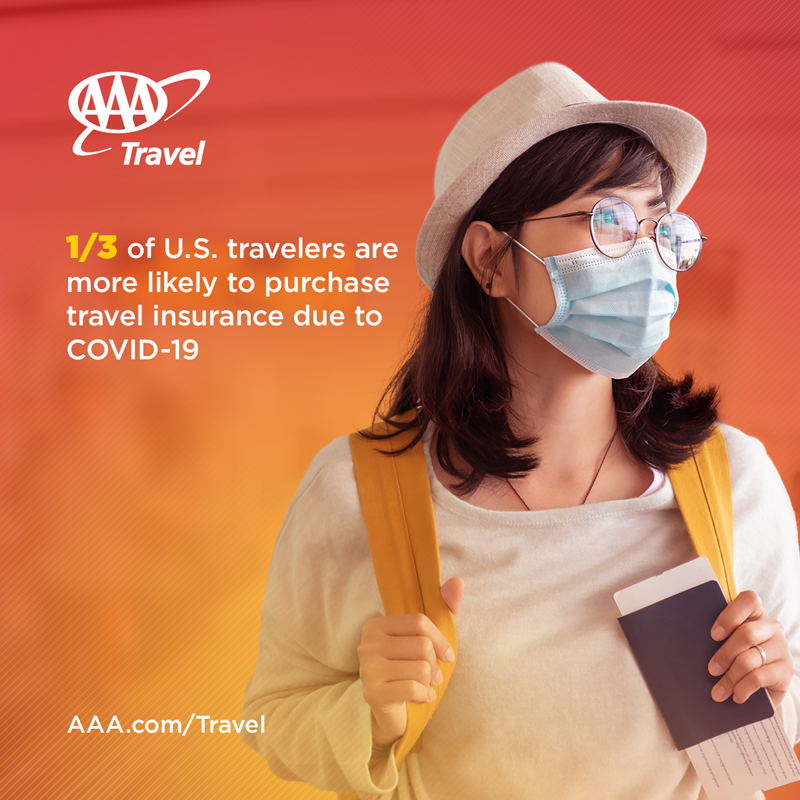Pandemic prompts more Americans to consider travel insurance

The COVID-19 pandemic has had a profound impact on Americans’ travel plans. How they plan – and protect – those trips has also changed. According to a recent AAA Travel survey, more than half (55 percent) of American adults are planning a vacation of at least one overnight stay before the end of next year, and those travelers are increasingly turning to travel insurance to protect their vacation investments.
One-third (31 percent) of U.S. travelers say they are more likely to purchase travel insurance for their trips planned between now and the end of 2022, specifically due to the pandemic.
“Travel insurance is relatively inexpensive for the large amount of peace of mind it affords, and that’s more valuable than ever in light of the pandemic,” said Paula Twidale, Senior Vice President, AAA Travel. “Americans have seen how important travel insurance is to protect their vacation investment and are prioritizing this purchase at the start, now more than ever.”
The ability to cancel a trip and get a refund is by far the most frequently cited benefit of travel insurance, with 69 percent of travelers saying this is most important to them when considering travel insurance for an upcoming trip. AAA advises travelers to look into policies that include a “cancel for any reason” component, which could offer more flexibility and protection in the event a traveler needs to cancel their trip.
While travel insurance policies have historically not covered epidemics or pandemics, in response to shifting consumer expectations, some providers have started to introduce plans that cover some losses due to COVID-19 or other epidemic diseases. AAA recommends travelers consult the expertise of a knowledgeable travel agent to help plan their trips and evaluate the various travel insurance options available on the market.
Choosing the right policy is important, and increasingly travelers want policies that protect against common covered reasons for trip cancellations and interruptions, as well as other travel-related incidents including change fees, delays, or lost/damaged luggage, to name a few. Also, it’s important to note that some international destinations may require visitors to carry travel insurance to help cover any unexpected medical costs that may be incurred while visiting.
“Travel insurance options vary greatly, but a knowledgeable travel agent can help you navigate through those complexities,” continued Twidale. “A trusted travel advisor serves as your advocate before and during your trip. Partnering with a travel advisor to review your travel insurance options offers another level of protection, so you can focus on making lifelong vacation memories.”
Provided information



